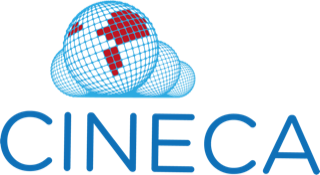Connect with CINECA - Dr. Éloïse Gennet
Meet the CINECA team and see the people behind the scenes as part of our Connect with CINECA series.
Dr. Éloïse Gennet is a post-doc at the French national institute for health and biomedical research (INSERM). In addition to her own research, she is involved in two H2020 projects (CINECA and EASI-Genomics) and is a member of the editorial committee of the International Journal of Bioethics. For CINECA, she recently presented a webinar on “Ethical, legal and societal issues in international data sharing” with Dr. Melanie Goisauf (BBMRI-ERIC). Trained in law, specialized in health law, Éloïse Gennet did an interdisciplinary and international PhD in law at the University of Aix-Marseille (France) and in bioethics at the University of Basel (Switzerland). She received the 2019 prize from the French Association of Health Law, the 2018 prize in law from Aix-Marseille University as well as the 2018 PhD prize in European law from the legal faculty of Aix-Marseille University for her PhD thesis entitled “Vulnerable people and clinical trials. Reflections in European law”. She is thus specialized in the fields of health law, bioethics, European law clinical trials, research ethics as well as in the concept of vulnerability, in particular in the concept of “health vulnerability”. She is now steering her research interests towards innovative and data-driven technologies in public health research with a special interest in vulnerable groups of patients.
What are you particularly passionate about in your research?
I am passionate about the concept of vulnerability. I find very stimulating the fact that it resonates with everybody while remaining so versatile. It brings a lot of contradictions as solidarity towards the most vulnerable is often seen as a burden whereas it actually is a trigger for innovation. Humans only get creative with complex challenges and unresolved dilemmas.
Have you changed the way you work over the years? If so, how?
Since the end of my PhD, as cliché as it sounds, I try to make a clearer distinction between my work and private life. Being hard working and passionate about research is good and crucial for the quality of the work. Being able to take a step back and switch off on a regular basis turned out to be as crucial because it led to more rational and efficient choices (and increased sanity!).
What are some questions that people should be asking you, but aren’t?
Most people are surprised by the very idea of doing scientific research in law and seem confused about what this could be for. I keep being asked if I am a lawyer, a judge or a professor. I am none of those. I think a simple but relevant question would thus be “What is the point of doing research in law?”
What do you like most about your work?
I definitely like the idea that I make a living of keeping educating myself, especially with such freedom in the topics and flexibility in the work conditions. Plus I am lucky enough to get to work with different people, with very different backgrounds and education, and from all over the world. The international and interdisciplinary aspects of research make it particularly stimulating.
If you could choose anywhere for the next CINECA AGM, where would it be?
Without hesitation South Africa! That would perfectly illustrate my answer to the former question.
I am passionate about the concept of vulnerability. I find very stimulating the fact that it resonates with everybody while remaining so versatile. It brings a lot of contradictions as solidarity towards the most vulnerable is often seen as a burden whereas it actually is a trigger for innovation. Humans only get creative with complex challenges and unresolved dilemmas. Dr. Éloïse Gennet

